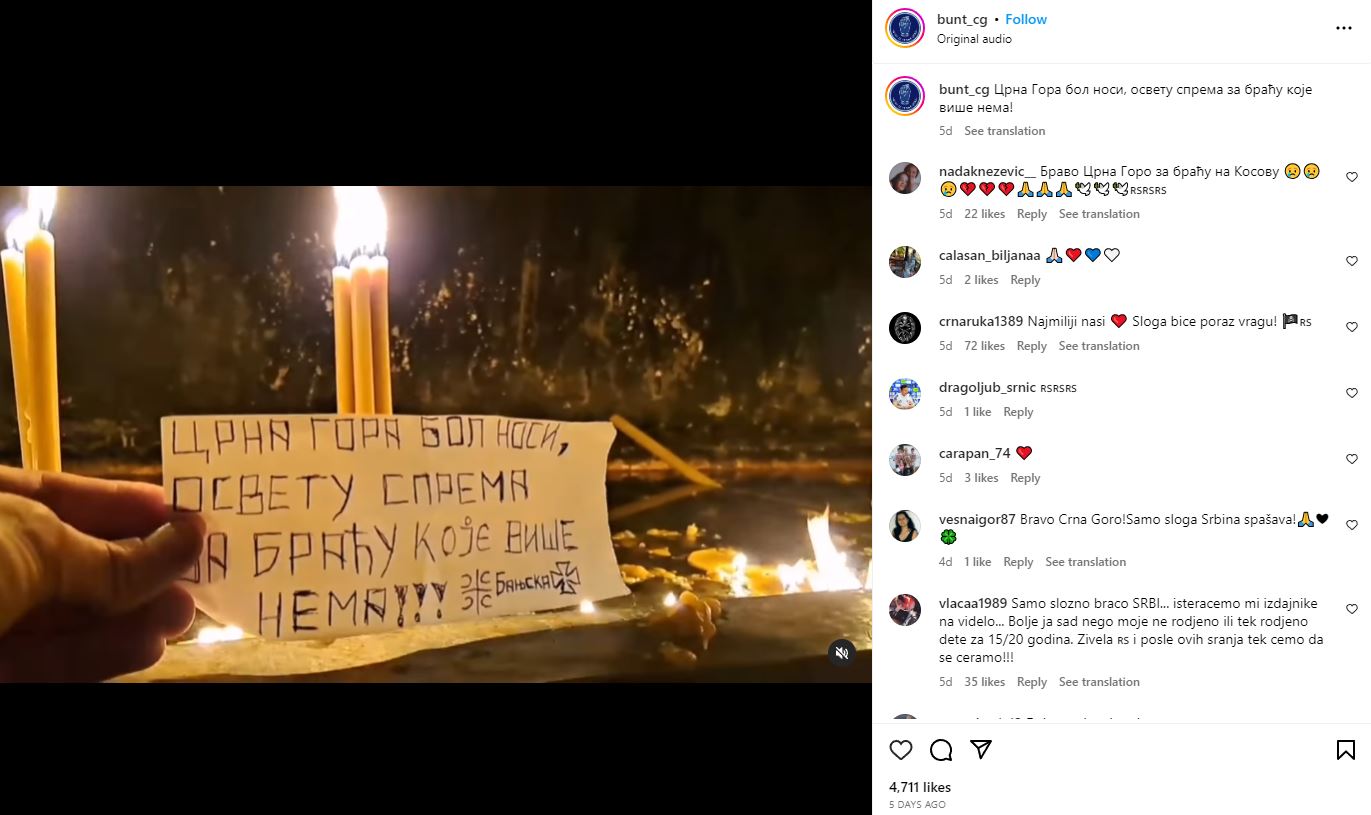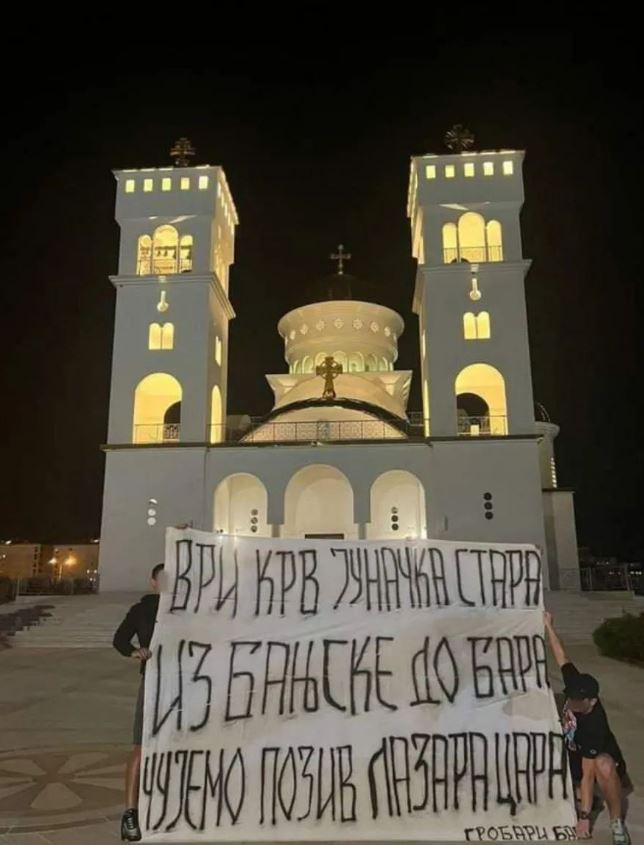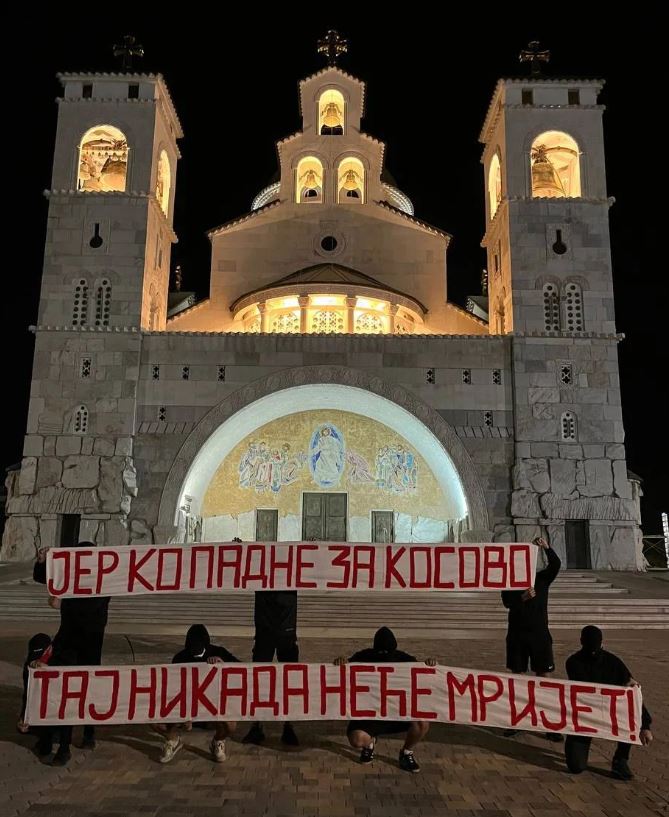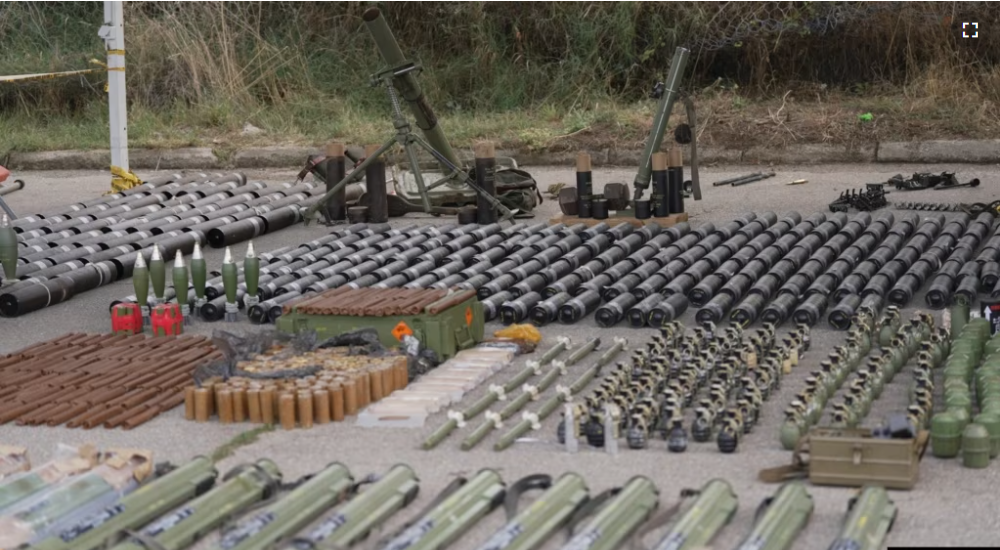Far-right pro-Serbian organizations have been trying to establish a prominent role in the socio-political life of Montenegro for an extended period. Their activities were particularly noticeable during significant events in the last four years – religious processions, parliamentary and local elections, the enthronement of the Metropolitan, as well as a large number of protests. Apart from developments on the Montenegrin political scene, regional events often act as a trigger for the activation and action of far-right organizations and individuals. Recent events in Kosovo have shown this once again.
An armed attack in northern Kosovo, organized and led by the Vice President of the Kosovo Serbian List, Milan Radojičić, has seriously threatened to disrupt peace and cause instability throughout the Western Balkans region. In the attack, one Kosovo police officer and three Serbian attackers were killed. While in Kosovo the attackers have been charged with terrorism, and the international community has called for their urgent prosecution, certain nationalist circles in Montenegro have created a narrative that portrays the attackers as heroes and victims. The Serbian Orthodox Church (SPC) plays a key role in shaping this narrative, along with far-right organizations and individuals, with the Miholjski zbor standing out in particular.
Miholjski zbor is an organization close to the Serbian Orthodox Church, one of its founders being Mijajlo Backović, a former member of the 63rd Parachute Brigade of the Yugoslav Army and secretary to Metodije Ostojić, the bishop of Budimlja-Nikšić of the SPC (Serbian Orthodox Church). As DFC previously wrote, in 2016, Mijajlo Backović attended the creation of the so-called Balkan Cossack Army in Kotor. In recent years, he has been actively participating in the political life in Montenegro. In June 2020, he was recorded coordinating a political protest organized by the Democratic Front in Budva. In August of the same year, shortly before the parliamentary elections, he cursed all the voters of the then-ruling coalition for adopting the Law on Freedom of Religion. The controversial actions of Backović include disrespecting the national symbols of Montenegro (he was the only one sitting during the performance of the Montenegrin anthem in Nikšić, on September 18, 2022, the Liberation Day, which led to a misdemeanor procedure against him, as well as in Budva during the celebration of the Municipality Day in 2019).
The Miholjski zbor presents itself on social media as a humanitarian organization, but when examining their views and activities and contextualizing them, an agenda based on right-wing ideology, a militaristic spirit, and loyalty to Serbia and Russia becomes apparent.
The political actions of the Miholjski zbor were first noticed in the run-up to the 2020 parliamentary elections. This organization has repeatedly publicly emphasized its active participation in overthrowing the regime of Milo Đukanović. After a vote of no confidence in the Montenegrin Government in February 2022, members of this organization took part in organizing protests and traffic blockades in Montenegro, together with members of the Orthodox brotherhoods Stupovi and Zavjetnici Tvrdoš, with clear demands addressed to political entities that the new Government should be formed by the parliamentary majority parties constituted after the 2020 elections and by minority parties. They openly threatened peace in Montenegro by announcing that the formation of a minority government would cause unprecedented chaos in Montenegro. A member of the organizational board of the people’s protests and a speaker at those protests was the president of the Miholjski zbor, Zdravko Nišavić.
Under the organization of the Miholjski zbor, the Association of Journalists of Montenegro (CG), and IN4S, pro-Russian rallies were organized on August 29 and September 1, 2022, in Budva and Podgorica. Igor Damjanović, a correspondent for IN4S and Serbian tabloids from the war zones in Ukraine, spoke at these events. It should be noted that Mijajlo Backović and Igor Damjanović had a meeting at the Russian Embassy in Podgorica on February 16th, 2022, and shortly thereafter, Damjanović traveled to Russia and has become a key media promoter of Russian war propaganda in Montenegro.
At a very delicate moment for the entire Western Balkan region, the SPC (Serbian Orthodox Church) in Montenegro, and the far-right organizations close to it, further manipulate and heat up the atmosphere with the aim of radicalizing and mobilizing Montenegrin citizens who identify as Serbs. In several Montenegrin cities, the SPC held memorial services for the fallen attackers, which were attended by dozens of Montenegrin citizens. The campaign is also being conducted through pro-Serbian media in Montenegro as well as on social media.



The Miholjski zbor made a statement the day after the conflict in Zvečani (Kosovo), on May 29, 2023. The statement said that the Serbian people are not alone and that they see the international community, specifically KFOR, EULEX, and the Quint, as the direct culprits for the current events in northern Kosovo. They also noted that these events might threaten regional security.
After the events in Kosovo, a video of Zdravko Nišavić appeared on social media in which he called for the mobilization of the population and veterans, urging them to go to Kosovo if necessary. In the video, Nišavić is wearing a T-shirt with the emblem of the Miholjski zbor and states that he is in front of the Kragujevačka building, which also houses the Military Department of the Serbian Army, where he will register or make himself available. He calls on all hisveteran friends and all military conscripts to contact the Military Department and create a viral invitation named Obraz, urging them to create and share videos to show that the spirit of the Obilić heroes still lives among the Serbs.
This can be interpreted as a continuation of the campaign over the past months carrying the message “when the army returns to Kosovo”.[i] Graffiti with this slogan appeared in several cities in Montenegro, Serbia, and even Russia. In the context of regional security, Montenegro has once again shown itself to be fertile ground for hybrid action. Through hybrid actions and the instrumentalization of the Church, a climate is being created for the consolidation of far-right organizations, which most often operate within the framework of fan groups or church brotherhoods.
[i] https://dfc.me/refleksivna-kontrola-kao-element-hibridnog-djelovanja-u-crnoj-gori/

